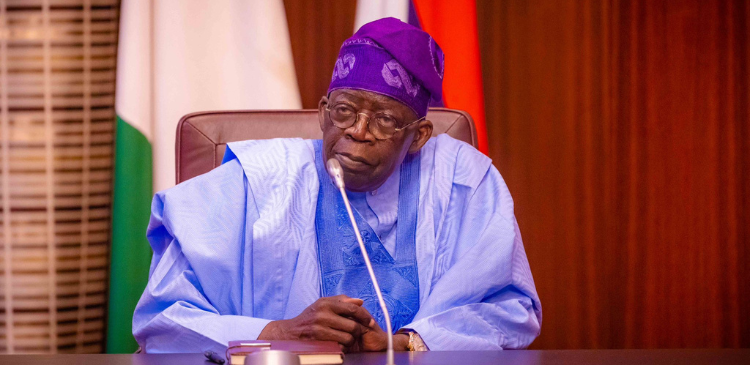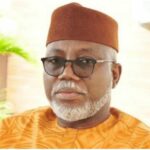
THE change in the mantle of leadership has yet to reprieve Nigerians from widespread insecurity. Instead, bloodletting blighted the first days of the Bola Tinubu Presidency as bandits cum terrorists massacred 62 persons in separate attacks in Sokoto and Zamfara states’ communities. With violence also occurring in the Federal Capital Territory, and Rivers, Ogun, Kaduna, Plateau and Benue states, the body count could rise much higher in the coming days. Therefore, the President should roll up his sleeves and confront the raging insecurity squarely.
In Tinubu’s first week, 78 persons were massacred across Nigeria, and 12 kidnapped, the Nigerian Security Tracker of the Council on Foreign Relations reported. This is devastating for a country not officially at war. This tally excludes the troops killed in an ambush by ISWAP terrorists in the Lake Chad region on June 2.
In the second week, tragedy hit Plateau and Niger states. Bandits slaughtered 50 farmers in Rafi Local Government Area communities and rustled livestock. Many residents fled. Last weekend, at least 21 persons, including a clergyman, died when gunmen invaded Riyom and Ladi LGAs of Plateau, where two herders were reported killed a few days earlier.
In three Tangaza LGA communities in Sokoto State, bandits aligned with the Lakurawa Islamic jihadists from Niger Republic, Mali and Libya butchered 37 persons. The terrorists reportedly killed the villagers because they refused to pay tributes to them. These foreign jihadists are undermining Nigeria’s sovereignty, as Boko Haram, ISWAP and Fulani herdsmen attackers have done for years.
In Zamfara, where bandits have been pillaging for a decade, 25 more persons were killed in two communities in Maradun LGA. In March 2021, then President Muhammadu Buhari declared a ‘no-fly zone’ over the North-West. It was futile: bandits murdered 200 persons in Zamfara between March and June 2021.
Coincidentally, the bloodletting resumed a day after Tinubu met the military service chiefs in Abuja where he charged them to eschew in-fighting and coordinate their operations. His predecessor – Buhari – had met with them countless times with no remarkable result because he never followed up or set targets. Tinubu should be different. The NST said violence claimed 63,111 lives under Buhari; two million others were displaced. To avoid that misadventure, Tinubu must adopt a hands-on approach.
About 30,000 bandits are estimated to be operating in Zamfara, compared to the 10,000 security agents on the ground. In Birnin Gwari LGA of Kaduna on June 4, the bandits slaughtered two farmers, and abducted 30 others. The terrorists had levied a tribute of N10 million on the communities, which deadline expired on May 30.
The violence has spread further south. In Rivers, gunmen killed four persons and beheaded two others on May 29. On June 5 in Ibadan, the Oyo State capital, assailants gunned down a University of Ibadan professor, Opeyemi Adewole, snatching his car. Two days earlier, robbers had murdered an undergraduate of the University of Lagos during an iPhone theft gone awry. In the Obafemi Owode LGA of Ogun, gunmen in army fatigues slaughtered two farmers.
Nigeria has become notorious for violence. In his first term as Kaduna State governor (2015-19), Nasir el-Rufai claimed Fulani herdsmen were avenging the killing of their livestock during the 2011 post-election violence in the North. Since 2009, Islamic jihadists have desecrated the peace nationwide, particularly in the North-East. Bandits reportedly number 120,000 in the North-West. Currently, the Nigeria Police cannot match this army.
Consequently, the Global Terrorism Index lists Nigeria as the eighth most terrorism-impacted country globally. It currently hosts four of the world’s 10 deadliest terror groups – Boko Haram/ISWAP, bandits, Fulani herdsmen and the Indigenous People of Biafra.
The elevated insecurity reflects in the 2023 Fund for Peace Fragile State Index, in which Nigeria is ranked 15th most fragile country out of 179 countries, alongside Mali (13th), Ethiopia (11th), and Libya (17th). Unfortunately, the perpetrators of bloodletting in Nigeria go scot-free. Since there is no retribution, they return to commit worse atrocities. Under Tinubu, there must be swift punishment for criminality.
The President, who promised to hit the ground running, has had rude reality check. In his inaugural speech, he concentrated on petrol subsidy; he needs to provide a concrete plan on security and marshal the security agencies for action.
To succeed, he must overhaul the security system, which has failed woefully in matching the emerging security challenges. He should restructure the composition of the current security chiefs. Most served and failed under Buhari; those found wanting should be removed, and new helmsmen appointed and given performance targets. Non-performers should never again be tolerated. Without compromising merit, appointments should reflect Nigeria’s diversity to ensure buy-in by all segments of the polity.
Among others, Tinubu should replace the Inspector-General of Police, Usman Baba, whose continued stay in office is enmeshed in legal controversy. He should also replace the leadership of the Department of State Services, known more for clamping down on regime critics than effectively securing the country. As acting President, Yemi Osinbajo sacked Lawal Daura as the director-general of the DSS in 2018 for invading the National Assembly, and Buhari replaced him with Yusuf Bichi, whose tenure has witnessed so much insecurity.
In the modern world, security is driven more by intelligence and technology. Tinubu should retool the intelligence services to play this role effectively, secure Nigeria’s porous borders and forests now occupied by terrorists and kidnappers. Criminals must be apprehended and prosecuted. Tinubu should implement measures to curtail the influx of arms into Nigeria, denying criminals their formidable arsenal.
Nigeria is the only one among the world’s 25 federal countries with a single police force. This anomaly undermines security. Ultimately, the President should collaborate with the state governors and the 10th National Assembly to swiftly invoke the ‘doctrine of necessity’ to devolve policing. The United States has 18,000 police forces; Germany has 22 state police forces and two federal police organisations. Tinubu should realise that without devolving policing, securing lives and property nationwide is unachievable.





